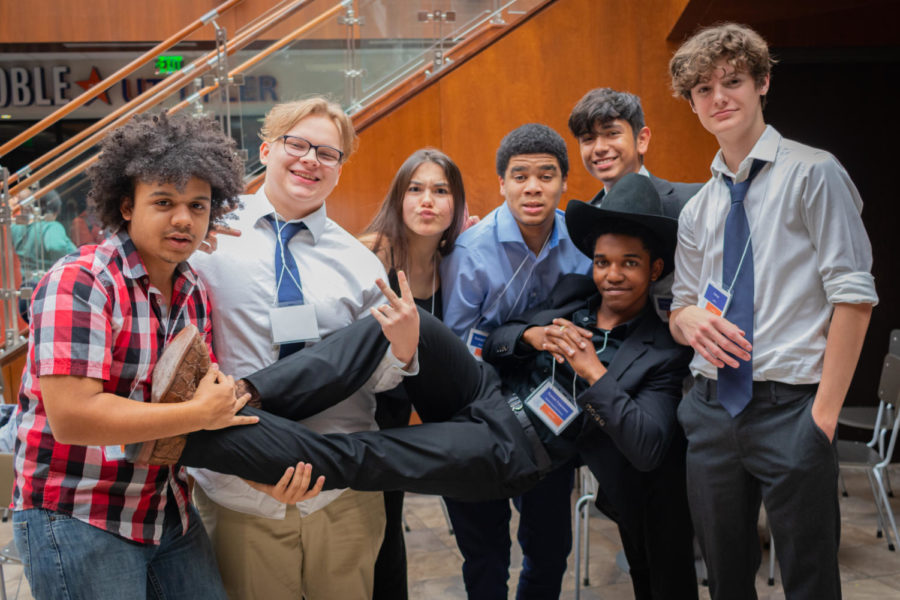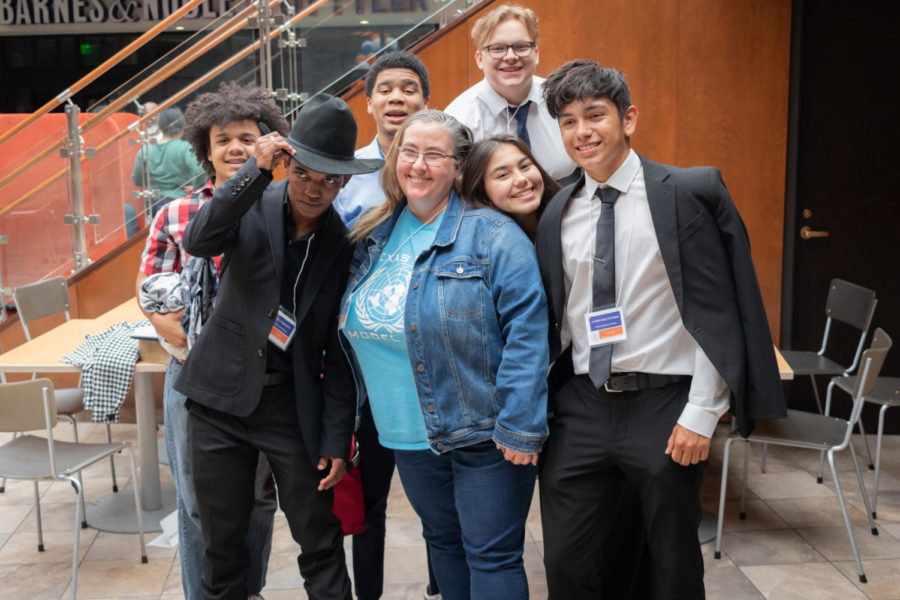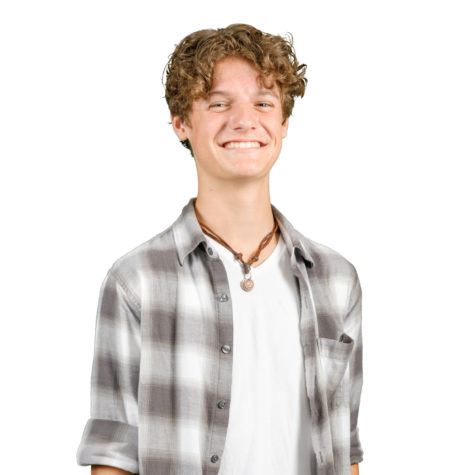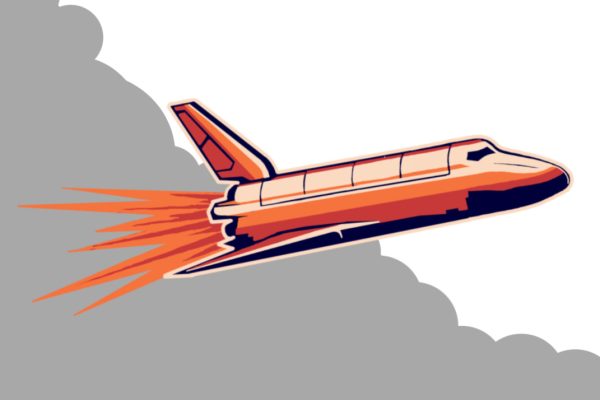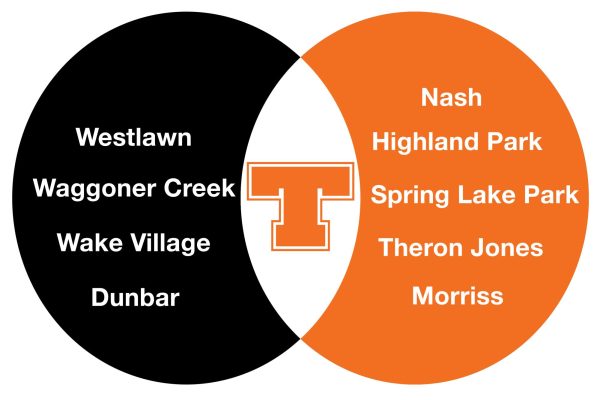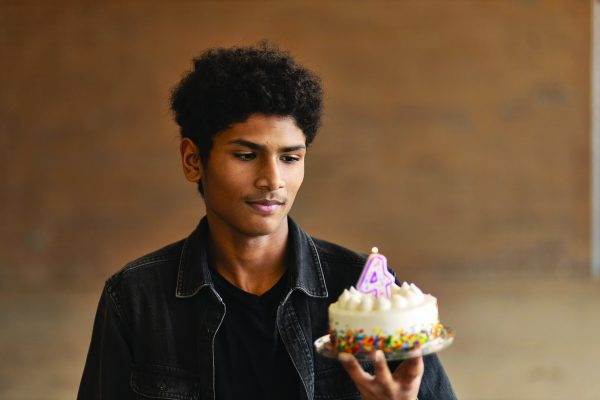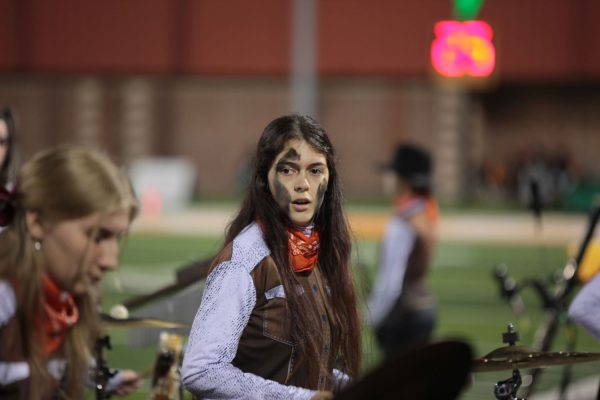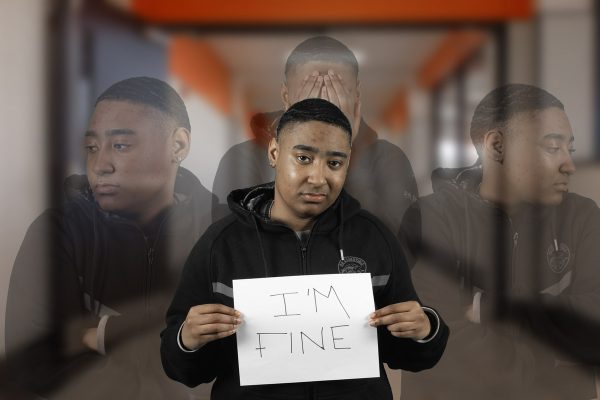A plan proposed, a plan stolen
Sophomore reflects on UT Tyler Model UN conference
April 6, 2022
Most teenagers dream of solving the world’s problems and seem to know exactly how they’d make it happen. Well, in the Model United Nations club, students work together to solve a world crisis while representing their assigned country.
March 25, I participated in a conference with the Model UN team. There were many different councils meant to replicate the real United Nations, from tackling the Afghanistan situation on the Security Council to addressing women’s rights with the General Assembly. This was my first meeting, and I had to solve the world-wide problem of marine plastic pollution on the United Nations Environment Assembly while representing Kenya. I had done a little research and reviewed what the council rules are, but I soon realized I was very unprepared.
We left Texas High at 6 a.m., and after a two and a half hour drive full of sing-alongs and political debates, we finally arrived at UT Tyler. This was the place where the conference was held. The first thing I noticed when I walked into the college was the roughly 150 highschoolers in suits.
They conversed with schools other than their own, most likely to scope out the competition for their councils. After I spoke with other students, none of whom were in my council, the Event Manager called us into the assembly room. They explained the basic rules for the competition: use Robert’s Rules of Order (a way of speaking in political councils), treat others with respect and respect the decisions of the council. With that, they sent us to our conference rooms.
My first impression was awe. Awe of the 25 foot ceilings, U-shaped table, and 15 chairs filled with delegates already conversing.
I sat down in a chair between Russia and Mexico and struck up a conversation. Then as I looked around, I noticed that each country, except Russia, Ghana, Ireland and I, had two people.
There were 12 people, and the majority of them pulled out binders of research and ideas. I looked down at my own desk which was practically bare and swallowed. But I had something most didn’t, a definite plan. The other delegates came up with a way to clean up the ocean, but I thought it would be best to stop the plastic pollution at the source.
A large part of plastic that gets into the ocean gets there through major rivers. There are 165 major rivers worldwide, so I proposed that we put a trash interceptor at the mouth of each of these rivers. A trash interceptor is a machine that includes a floating barrier that funnels water to a belt then dumps the trash into trash bins. My plan was to require each joining country to pay 11 million dollars for the purchasing and installation of these trash interceptors. But since I was Kenya, a small country, I needed lots of sponsors to help pay and carry out my plan. The first country I approached was Mexico.
During the first unmoderated caucus, a break in formal session to freely confer with other delegates, I needed help to plan my idea. Mexico helped me develop my ideas as my first sponsor. I then went around and won the support of four different countries: France, Russia, Norway and India. The unmoderated caucus was over in 30 minutes. Mexico, Albania and India gave their speeches explaining their goals and plans.
Then the countries had a recession from formal speeches for 45 minutes. That was when I met my first obstacle. As I approached the country of Albania, they asked me what I was going to do with the trash after it was collected by the interceptor. I was stumped, so I conferred with Mexico and Ireland who had agreed to help me. We discussed many options and decided that the Navy would pick up the trash twice a week. The navy usually has bases or patrols the mouths of rivers, so it would be a sufficient answer. With that, Albania joined my plan. The rest of the 45 minutes was spent gaining followers and partners until only two countries didn’t support my idea: China and the United Kingdom.
We then proceeded to the final speeches, and I, Kenya, went first. I said “Hello everyone. I am Kenya, and there are a few topics I would like to touch on. I am obviously a small country and only have ideas and opinions to offer. So I ask that you support my plan for stopping pollution at its source by putting in place a trash interceptor in the world’s 165 major rivers. This will allow us to stop the problem for the time being and give us time to figure out what to do about the trash already in the ocean. Kenya believes that this should be a major concern for countries world wide. This is shown by the fact that we hosted the first ever UNEA meeting. We want to reduce the amount of trash pollution in our country to 15% of what it is today by 2050.”
With my speech done, I sat down and took notes on the remaining eight speeches. France and the U.K. had a good idea to provide a fund to allow for research on the cleaning up of the ocean. This would be a long term solution and thus complementing my short term plan. For that reason, I decided that I would support them. The other speeches went by in a flash and we were into our final recession.
This unmoderated caucus was one hour long, and we were supposed to use the time to write our resolution paper. I had no idea what a resolution paper was or how it was supposed to be formatted. That’s when India approached me. They said they would write the paper so I would be free to convince China and the U.K. I agreed trustingly and spent the next 15 minutes ironing out the details with the U.K. They eventually agreed with my plan as long as I planned to support them as well. Then came my hardest challenge yet. I approached China and argued with them for 30 minutes. They seemed to think that my plan was similar to France’s, even though they were very different. I found out later that they were acting difficult on purpose because that is how China would act in these meetings, but after endless arguing, and a threat from India, they agreed.
I had accomplished the hardest task any Model UN delegate could; I had a unanimous vote. I spent the next 15 minutes ensuring votes from every country while India turned in the resolution paper. It was now time to vote for the papers. I could barely hold my excitement as I sat down in my seat. The director then stood up and presented the plans: The trash interceptor by India and France’s research trust fund.
Wait. Wait! India’s trash interceptor?! I looked over at India’s table to see them smiling brightly. That’s when I realized that in the resolution paper India claimed my idea as its own. Seething with anger I sat there quietly because no one can interrupt the voting process once it has started, or they will be disqualified. Still mad, I voted to move forward with my plan. As did everyone else. I did it, I had a unanimous vote, but I would get no credit. France’s paper also passed with a unanimous vote.
The competition ended after five hours and India won an award for my plan. I think I learned a lot from this experience: don’t trust blindly. I think this will help me in future meets and push me to do better. I now know I can do it. I encourage anyone interested about anything I mentioned to consider joining Model UN because I really had a great time.


